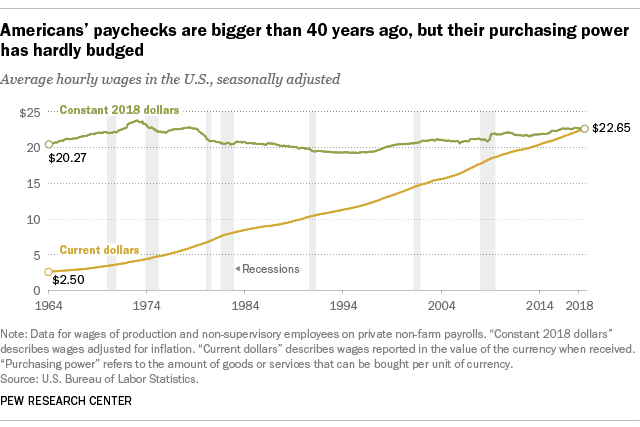Conaeolos
DP Veteran
- Joined
- Jun 5, 2017
- Messages
- 1,994
- Reaction score
- 416
- Gender
- Male
- Political Leaning
- Other

Secular Talk
Find the latest breaking news and information on the top stories, weather, business, entertainment, politics, and more. For in-depth coverage
There's a ton here I disagree with, and I very much would celebrate every rags-to-riches stories. Income mobility after-all is far more important than most breakdowns. Most egregious however to me, is the suggestion, wealth is finite. I very much would argue capitalism works despite downsides such as consumerism & inequality of outcome, because it creates more wealth in an economy than any other market environments. More people having billions helps connected people in material-poverty by increasing the amount in circulation - the exact opposite as what was stated. This is quite a leftist board: do many here agree with Kyle that the reason America isn't a meritocracy is there is a finite amount of wealth? If so, can you break it down different from him for this skeptic.
One point I do agree is the covid-19 crisis has seen by legally mandated redistribution from average Americans to the corporate-class. I do not however think either the story of which he's basing his anger (e.g. DoorDash, AirBnB) are
examples of this issue in which we agree.
Other, sub-conflicts:
Meritocracy
One's 'working hard' is meaningless if the demand for their skills is so low they make minimum wage or below. Low-skilled labor should be done by entry-level or alt-level people(young/old people, high-earner who needs base money) who do not rely on wages to make a living. For people who find themselves in dire-straits in a capitalist free market, maybe due to addictions or a health complication, yes I think there should be a safety-nets maybe even sans work. This should be minimal. Poverty isn't going to disappear.
CEO Compensation
A good CEO verse a bad CEO can mean the difference between shifts in wealth in the billions, practically infinite new revenues & losses. The idea their compensation should be in line with an always in demand employees, such as say a secretary or trades person is insane to me. A secretary doesn't create value in the millions, paying them so is destroying the effective distribution of resources not is worsen our already bad selection processes.
Productivity / wages
Most productivity gains today are due to increases of technology which requires high capital-investment. People who create that technology are extremely well compensated. Diverting funds from high capital-investment technology to increase standard employee wages beyond market will only destroy wealth as it's inefficient-management. The gains for employees is in increased buying power as higher-productivity lowers prices.
Redistributive Policies
Redistribution is bad when it takes from high-effective use to low-effective use. It good only as a safety-net for those who can not compete within the market. So far example, if I produce by the market millions in value and buy a yacht creating a whole niche industry that would otherwise not exist that is infinitely better than my employees spending the same on more food, cars & entertainment (which in case you miss puts all the power into big-industry players hands).
but, but, but what about education? well, a teacher can only produce what the market will allow. So although, they are often very valuable to those who by their instruction gain knowledge that increases one ability to produce value(hence well paid). If say, instead they were teaching Joe Average to be a middle-manager (a good job) but joe lacks the underlying personality, network and opportunity to be a middle-manger. The education is actually a debt not an asset for Joe. Overing educating is a huge problem in our society, unless we change what we teach.
Progressive income tax
If you have $1,000,000 and make $100,000 verses you have $100,000 and make $1,000,000. Shouldn't both be equal?
High income tax is a great way to generate a lot of tax revenue but it comes at the cost of income mobility & creating a classed society.
Wealth tax
This would destroy an economy by destroying a lot of its wealth.
When someone is worth $1,000,000,000 it's because they own shares.
If they had to liquidate all those shares, they'd would not actually have $1,000,000,000 because no one would buy that amount of shares at that share price.
This is literally a plan to burn wealth for no gain.
Income tax produces far more tax-revenue than you could ever extract from the wealthy. We're talking fractions of a fraction.
45% of Wealth Inherited
I am motived most by what I can get for my children. My max net-worth will likely be on my death-bed. I'm not doing it for me, assuming many more are like me, death taxes would kill more economic libido more not less.
Last edited:


